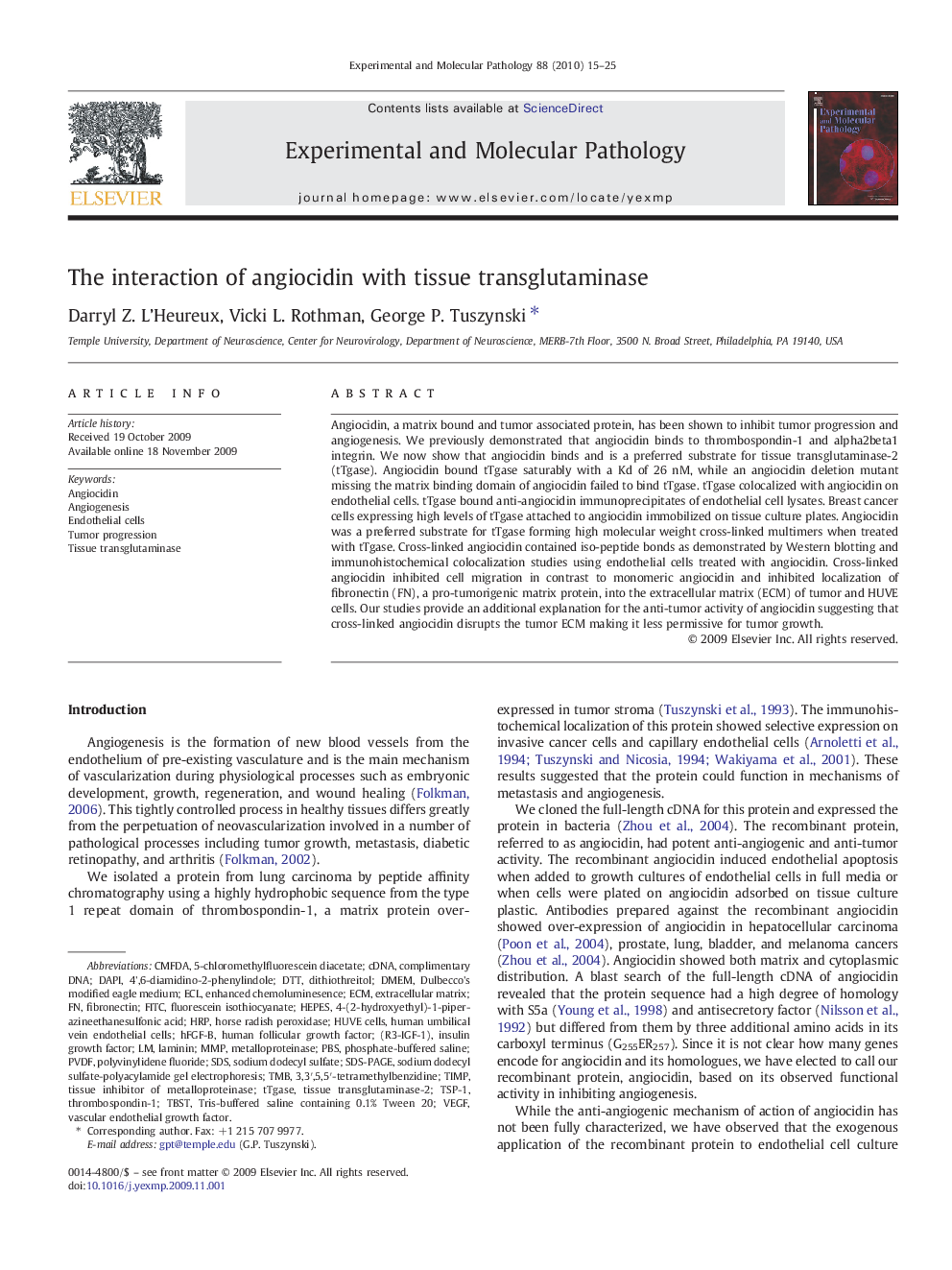| Article ID | Journal | Published Year | Pages | File Type |
|---|---|---|---|---|
| 2775585 | Experimental and Molecular Pathology | 2010 | 11 Pages |
Angiocidin, a matrix bound and tumor associated protein, has been shown to inhibit tumor progression and angiogenesis. We previously demonstrated that angiocidin binds to thrombospondin-1 and alpha2beta1 integrin. We now show that angiocidin binds and is a preferred substrate for tissue transglutaminase-2 (tTgase). Angiocidin bound tTgase saturably with a Kd of 26 nM, while an angiocidin deletion mutant missing the matrix binding domain of angiocidin failed to bind tTgase. tTgase colocalized with angiocidin on endothelial cells. tTgase bound anti-angiocidin immunoprecipitates of endothelial cell lysates. Breast cancer cells expressing high levels of tTgase attached to angiocidin immobilized on tissue culture plates. Angiocidin was a preferred substrate for tTgase forming high molecular weight cross-linked multimers when treated with tTgase. Cross-linked angiocidin contained iso-peptide bonds as demonstrated by Western blotting and immunohistochemical colocalization studies using endothelial cells treated with angiocidin. Cross-linked angiocidin inhibited cell migration in contrast to monomeric angiocidin and inhibited localization of fibronectin (FN), a pro-tumorigenic matrix protein, into the extracellular matrix (ECM) of tumor and HUVE cells. Our studies provide an additional explanation for the anti-tumor activity of angiocidin suggesting that cross-linked angiocidin disrupts the tumor ECM making it less permissive for tumor growth.
